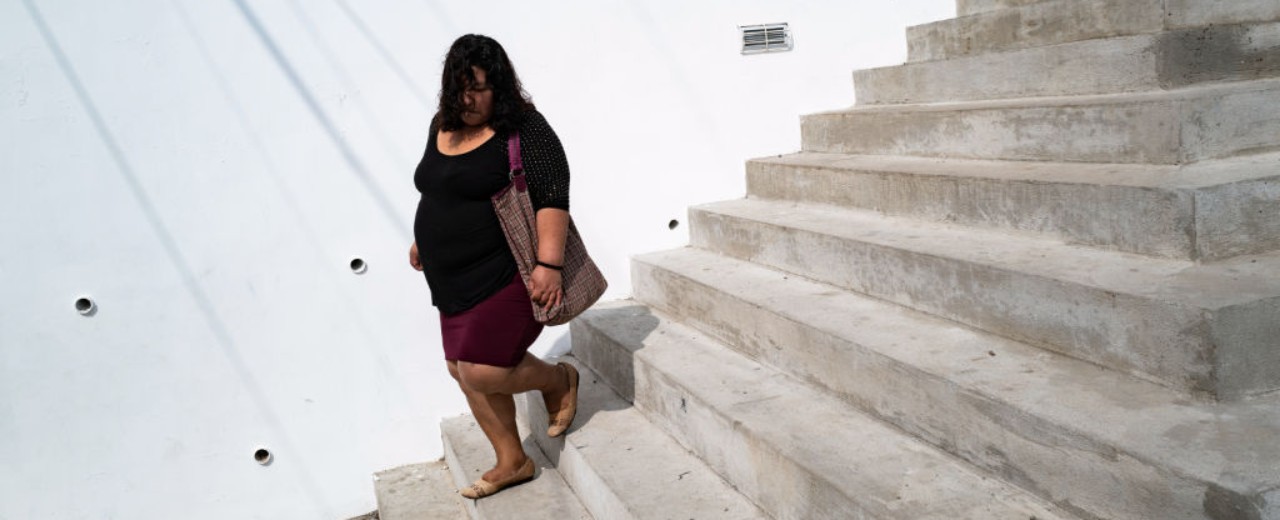
As of: 02/2024
Colombia is one of the countries with the highest levels of inequality in the world. This not only relates to poverty and wealth, but also to social participation. Women in particular are still a long way from achieving social equality. On average, they are underrepresented in business and politics, poorer than men and spend more time on unpaid family and care work. They are also more vulnerable to violence and human trafficking. People with diverse gender identities are also severely disadvantaged. For this reason, KfW is working on behalf of the German Federal Government to support the Colombian government's reforms, which are aimed at improving gender equality and equality for diverse population groups.
There are few countries in the world where the gap between rich and poor is as stark as in Colombia. Close to 37% of the population were categorised as poor in 2022 and nearly 14% were categorised as very poor. However, that is just the national average. Women are poorer than men and people in rural areas are poorer than those in cities. People of African-American origin and indigenous people are particularly affected by poverty. The latter have a poverty rate of over 42%.
However, inequality does not only affect monetary income. Colombian women also do much of the work when it comes to domestic and family life. In Colombia, life is also more dangerous for women than men, as they are much more likely to be subject to gender-based violence. People with diverse gender identities are also severely discriminated against in Colombia.
After decades of civil war, the state still lacks the power to enforce the law in many rural regions and support structures are often unavailable. However, the government has undertaken ambitious reforms to improve gender equality and equality for those with diverse gender identities.

On behalf of the Federal Ministry for Economic Cooperation and Development, KfW is supporting the Colombian government in its reform efforts aimed at promoting gender equality and equality for people with diverse gender identities. The Inter-American Development Bank (IDB) is also a donor. Based on the national policies and development plans, the IDB and Germany have worked with Colombia to develop a reform matrix that sets out the steps to be taken during the reform process and the associated indicators.
KfW is promoting the implementation of these reforms by offering a low-interest loan of over EUR 150 million as part of the initial phase. Up to two further phases are planned. In addition, the Federal Ministry for Economic Cooperation and Development has provided non-repayable grants to engage experts who will support the participating partner organisations during the preparation and implementation of the reform matrix. The project works according to the principle of policy-based lending (PBL). This means that KfW will only disburse the funds for the loan when the policy measures in the reform matrix have been implemented. The IDB and KfW will use agreed evidence to assess whether these steps have been fulfilled. Upon disbursement, the loan funds are transferred to the Colombian state budget.
The individual steps of the policy matrix are extensive and detailed. In this way, human trafficking is to be stemmed and the rights of victims of human trafficking strengthened. A national system for identifying and prosecuting gender-based violence is planned. People of diverse gender identities should also be better protected from violence and discrimination; the aim is to achieve equality for these people too. Another important component is the introduction of a national care system.
A first major step towards equality and equity for population groups that are disadvantaged and suffer discrimination has already been taken. In 2022, Colombia established the Ministry of Equality and Equity in recognition of its public responsibility in this area.
Reducing inequality and discrimination strengthens social cohesion and advances both social and economic development in the country. This means the whole population of Colombia – around 52 million people in total – will benefit from the equality measures. However, the focus is on women and girls, who make up more than half of the population, and people with diverse gender identities.
The project contributes to the achievement of these following United Nations Sustainable Development Goals:
KfW Group
KfW Development Bank
Country sector principles/Latin America
KfW Office Bogotá
Share page
To share the content of this page with your network, click on one of the icons below.
Note on data protection: When you share content, your personal data is transferred to the selected network.
Data protection
Alternatively, you can also copy the short link: https://www.kfw-entwicklungsbank.de/s/enzBzv_9
Copy link Link copied